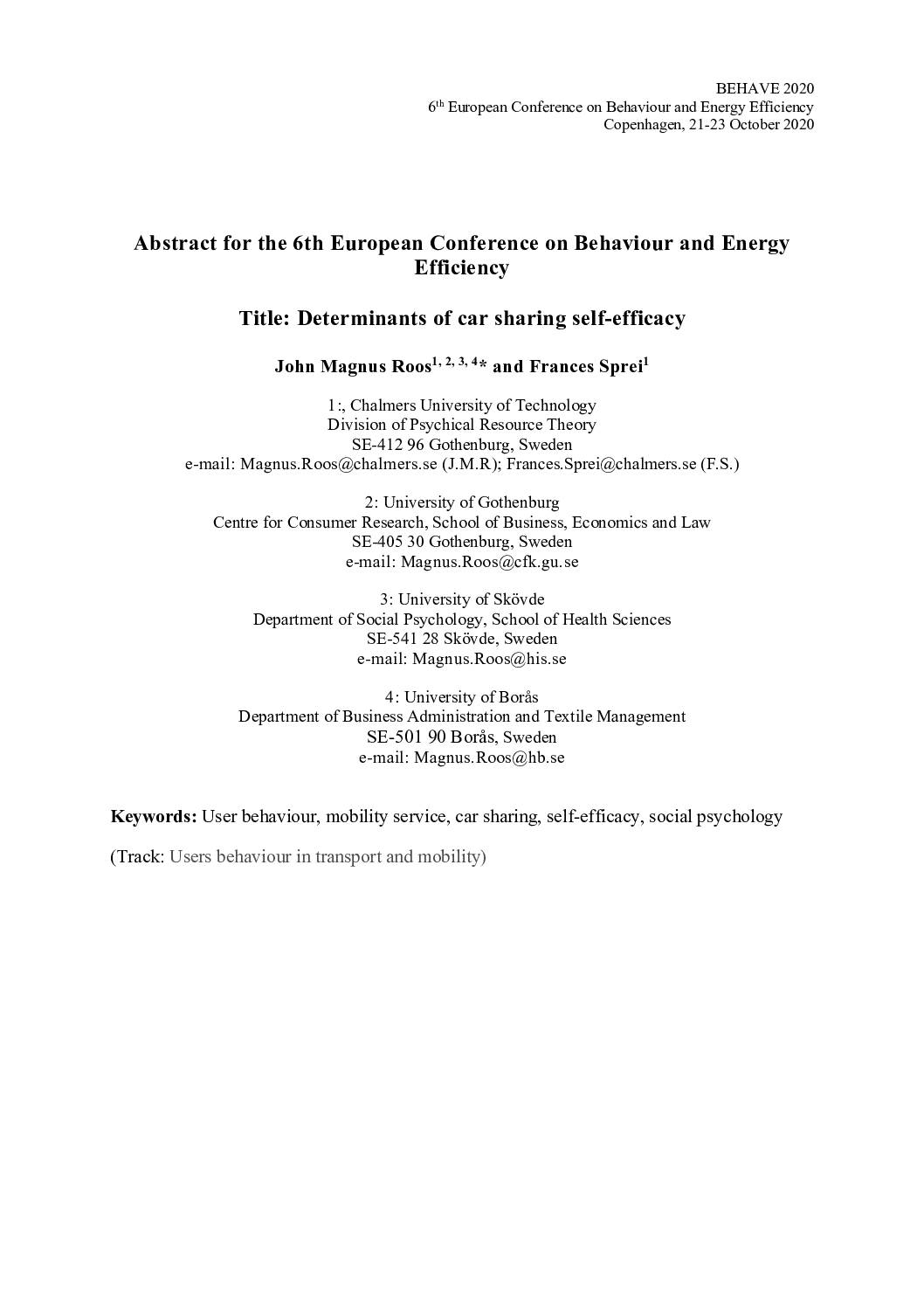Car sharing has been promoted as part of a sustainable and efficient transport system given the possible reduction in number of vehicles and driving distances. Car sharing has been present in Europe since the later forties and has gained in interest and membership in the last years. Still it is only a small part of the general population that uses these services. It is thus interesting to better understand how well these services meet the users’ needs and how they are perceived even among non-users.
In this study we focus on the self-efficacy of stationary car sharing in Gothenburg, the second largest city in Sweden. Self-efficacy is defined as an individual’s belief in his or her ability to control and manage a specific situation. Self-efficacy depends on four factors: (1) Experiences, (2) Observation of others, foremost persons that are perceived as similar and important. (3) Persuasion from others (i.e. social persuasion), foremost persons that are considered important. (4) Emotional arousal caused by the specific situation (e.g., stress or emotional stability). The aim of the present study is to explore if the four factors can be used to explain car sharing self-efficacy. We define car sharing self-efficacy as the belief in one’s ability to fulfill all needs of a car through car sharing. Thus, we formulate the following four hypotheses:
1. Experiences of car sharing influence car sharing self-efficacy.
2. Vicarious experiences (Observations of others) influence car sharing self-efficacy.
3. Social persuasions influence car sharing self-efficacy.
4. Emotional arousal influences car sharing self-efficacy.
Download sourceShare this

Sectors: Cities, Transport
Country / Region: Global
Tags: car sharing, cities, drives, energy efficient transport, transportIn 1 user collection: Session 4a: Users behaviour in transport and mobility
Knowledge Object: Publication / Report
Publishing year: 2020
Author: John Magnus Roos, Frances Sprei
Content:

